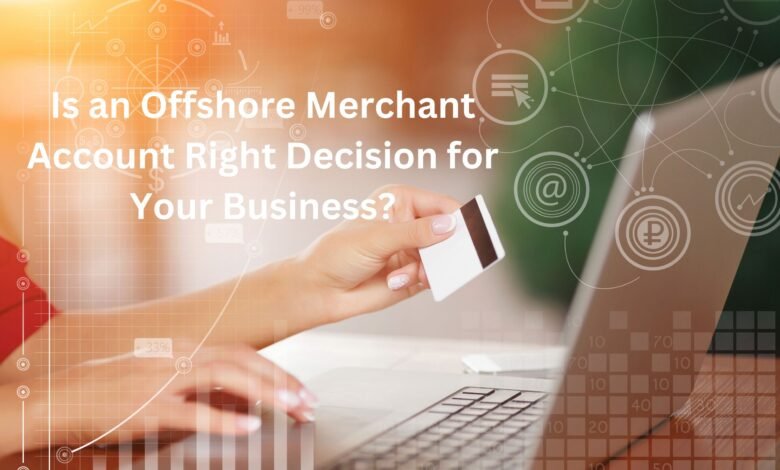
Introduction:
In the ever-evolving landscape of global commerce, businesses often find themselves facing unique challenges, particularly when it comes to payment processing. For enterprises labeled as high-risk, the quest for a suitable payment solution is even more complex. One avenue that businesses explore is obtaining an offshore merchant account. This article delves into the intricacies of offshore merchant accounts, assessing whether this financial decision is the right fit for businesses, particularly those operating in high-risk industries.
Understanding High-Risk Merchant Accounts:
High-risk businesses, such as those in industries like online gaming, adult entertainment, and nutraceuticals, often face hurdles in securing conventional merchant accounts due to increased chargeback risks and regulatory complexities. In response to these challenges, many businesses turn to high-risk merchant accounts, with some opting for offshore solutions to navigate the intricate landscape.
In assessing whether an offshore merchant account is the right decision for your business, it’s essential to delve deeper into the nuanced advantages and potential challenges associated with this financial strategy. One of the key aspects to consider is the global expansion opportunity facilitated by offshore accounts. These accounts open doors for businesses to enter international markets, broaden their customer base, and tap into diverse economies. However, this global reach comes with the responsibility of navigating varied regulatory landscapes, demanding a meticulous approach to compliance.
For businesses grappling with high chargeback rates, the potential reduction in chargeback impact is a compelling reason to consider an offshore merchant account. Offshore accounts are often governed by different chargeback rules than domestic ones, offering businesses with historically higher chargeback rates a valuable avenue to mitigate financial risks. Yet, it’s crucial for businesses to implement robust risk management strategies to stay within acceptable chargeback limits and maintain a healthy financial standing.
Pros and Cons of Offshore Merchant Accounts:
Global Expansion and Market Access:
Pros: One of the primary advantages of offshore merchant accounts is the opportunity for global expansion. Businesses can tap into international markets and cater to a broader customer base, especially beneficial for e-commerce enterprises.
Cons: Navigating the regulatory landscape in different countries can be challenging. Compliance with diverse regulations becomes crucial to avoid legal complications.
Reduced Chargeback Impact:
Pros: Offshore accounts may offer reduced chargeback impact, as they are often subject to different chargeback rules compared to domestic accounts. This can be advantageous for businesses with historically higher chargeback rates.
Cons: Businesses must carefully monitor and manage chargebacks to stay within acceptable limits, as excessive chargebacks can still lead to account complications.
Currency Diversification:
Pros: Offshore accounts often support multiple currencies, providing businesses with flexibility and the ability to transact in various international currencies.
Cons: Fluctuations in exchange rates can impact the actual value received by the business. Currency management becomes a crucial aspect of operations.
Privacy and Security:
Pros: Offshore accounts may offer enhanced privacy and security features, shielding businesses from certain regulatory scrutiny and providing an added layer of protection for sensitive financial information.
Cons: Businesses must thoroughly vet offshore banking partners to ensure they meet industry standards for security and compliance. Trustworthiness is paramount in selecting an offshore financial institution.
Potential Cost Savings:
Pros: Offshore merchant accounts may offer cost advantages, including lower transaction fees and reduced tax liabilities in certain jurisdictions.
Cons: The initial setup costs and ongoing maintenance fees of offshore accounts must be weighed against potential savings. Businesses should conduct a comprehensive cost-benefit analysis.
Considerations for High-Risk Businesses:
For high-risk businesses, the decision to opt for an High Risk offshore merchant account involves careful consideration of specific factors:
- Industry Regulations: It is crucial to understand the regulatory landscape of the industry in which the business operates. Offshore jurisdictions may have different regulations, and compliance is paramount to avoid legal repercussions.
- Risk Management Strategies: Implementing robust risk management strategies is essential. This includes thorough due diligence on offshore banking partners, monitoring chargeback ratios, and staying abreast of industry changes that may impact the business.
- Cost Analysis: Conducting a thorough cost analysis is imperative. While offshore accounts may offer potential savings, businesses must assess all associated costs, including setup fees, transaction fees, and ongoing maintenance expenses.
- Global Business Plans: Businesses should align their decision with their global expansion plans. If international market penetration is a key objective, an offshore merchant account may be a strategic move.
Conclusion:
In conclusion, deciding whether an offshore merchant account is the right choice for your high-risk business requires a comprehensive evaluation of the potential benefits and drawbacks. While an offshore solution can offer global market access, reduced chargeback impact, currency diversification, enhanced privacy, and potential cost savings, businesses must navigate the regulatory complexities and diligently manage associated risks.
Ultimately, the suitability of an offshore merchant account hinges on the specific needs, goals, and risk tolerance of the business. Thorough research, compliance with regulations, and a proactive risk management approach are key elements in making an informed decision that aligns with the unique dynamics of high-risk industries. As the business landscape continues to evolve, staying informed and adaptable is paramount to successfully navigating the complex world of payment processing for high-risk enterprises.



